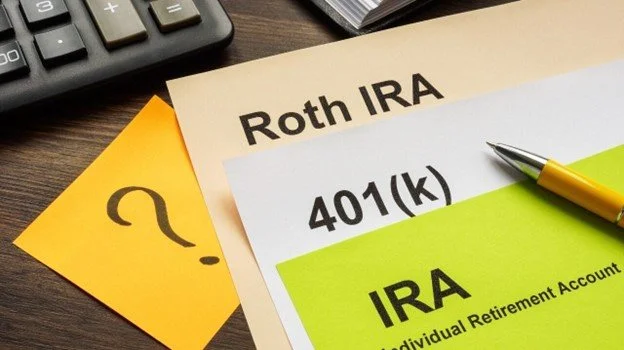Which Retirement Plan is Right For You?
Deciding on your career is a big step in life. Finishing that journey is exciting and important for your future. Without diligent retirement planning throughout your career, you might find yourself working longer than you had anticipated.
Retirement accounts are important for managing and growing your money over time. They help ensure you have enough income to support yourself during retirement.
A variety of retirement savings options are available, each suited to different situations and financial goals. Planning for retirement means deciding how you want to live, thinking about what you'll need, and setting money goals.
If you’re new to retirement planning, the multitude of options can be daunting. If you know a little about retirement savings but need a reminder, a financial advisor can assist you with understanding. Below, we outline various types of retirement plans and their respective benefits and drawbacks.
Individual Retirement Accounts (IRAs)
IRAs allow you to save for retirement with tax advantages. The main types are traditional IRAs and Roth IRAs.
Traditional IRAs
Contributions can be made with pre-tax money, which may be deductible on your tax return, or after-tax money.
Earnings can grow tax-deferred.
Withdrawals after age 59½ are taxed as current income but are penalty-free.
Ideal for those seeking immediate tax benefits.
Roth IRAs
Contributions are made with after-tax money.
Earnings grow tax-free.
Withdrawals after five years and age 59½ are tax-free and penalty-free.
Suitable for those who prefer tax-free withdrawals in the future.
Employer Retirement Accounts
Employer-sponsored retirement plans have different types. These include traditional 401(k)s and Roth 401(k)s for for-profit companies. Nonprofits typically offer 403(b) plans. Government employees usually have thrift savings plans.
Traditional 401k
Contributions are made with pre-tax money.
Employer matching may be available.
Roth 401k
Contributions are made with after-tax dollars.
Employer matching may be available.
403b
Offered by nonprofit organizations, often referred to as tax-sheltered annuities.
Can include both traditional (pre-tax) and Roth (after-tax) options.
Employer matching may be available.
Thrift Savings Plan
Available to government employees.
Can include traditional (pre-tax) and Roth (after-tax) options.
Many employers match up to 5% of your salary.
Self-Employed Retirement Accounts
Self-employed individuals have various retirement savings options available to them. These options include traditional and Roth IRAs, solo 401(k)s, SEP IRAs, SIMPLE IRAs, and defined benefit plans.
Solo 401k or Solo Roth 401k
Contributions can be pre-tax or post-tax.
Earnings grow tax-deferred or tax-free, respectively.
Best for self-employed individuals without employees.
SEP IRA
Distributions in retirement are taxed as income.
Ideal for small businesses with few employees, as contributions to your own account must be matched for employees.
Simple IRA
Contributions are deductible, and distributions are taxed in retirement.
This is great for larger companies with up to 100 employees. Employees can contribute to their accounts, and employers usually match or make fixed contributions.
Defined Benefit Plan
Contributions are tax-deductible; distributions in retirement are taxed as income.
Costly to maintain.
Best for high-income self-employed individuals who can make substantial, consistent contributions.
Bottom Line
Understanding all the retirement options can be overwhelming. A financial advisor from Olde Raleigh Financial Group can help you select the best retirement plans, ensuring you’re well-prepared to reach your retirement milestone successfully.
Disclosures:
This information is an overview and should not be considered as specific guidance or recommendations for any individual or business.
This material is provided as a courtesy and for educational purposes only. Please consult your investment professional, legal or tax advisor for specific information pertaining to your situation.
These are the views of the author, not the named Representative or Advisory Services Network, LLC, and should not be construed as investment advice. Neither the named Representative nor Advisory Services Network, LLC gives tax or legal advice. All information is believed to be from reliable sources; however, we make no representation as to its completeness or accuracy. Please consult your Financial Advisor for further information.

